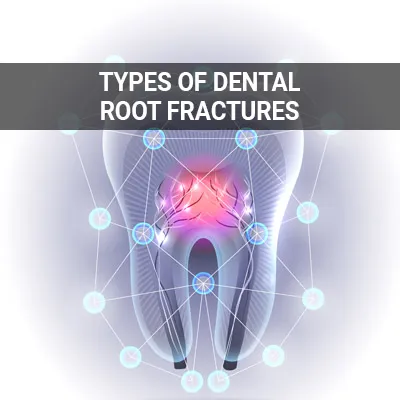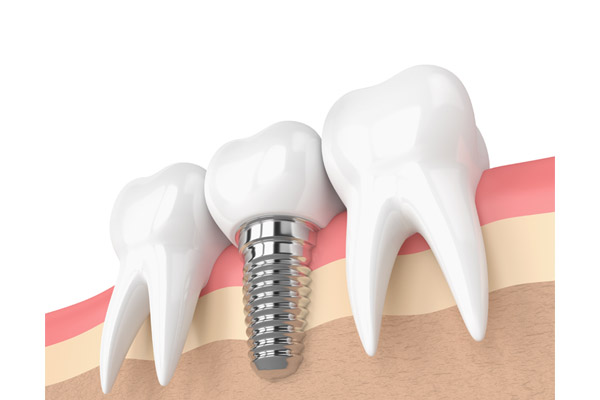The Truth Behind Root Canals Federal Way, WA
Root canals are one of the most common dental procedures. A root canal treatment is when the dentist removes inflamed or infected pulp from the tooth center, cleans and disinfects the remaining space, and then fills and seals it. This procedure eliminates bacteria from the affected area, prevents reinfection, and preserves your natural tooth.
Root canals are available at Smile Center Dental Care and the surrounding area. Chances are you have heard a lot of misconceptions about the procedure. Our staff can provide the truth behind root canals—call 253-326-6230 to schedule a consultation.
When Root Canals Are Necessary
Root canal treatments are one of the most common types of endodontic treatment. They become necessary when the inner tissue of the tooth's root canal (or pulp) becomes infected or inflamed. This may happen for several reasons: cracks or chips in the teeth, deep decay, or repeated dental procedures. The pulp may also sometimes be infected or inflamed without any signs of external damage.
There are some other telltale signs that someone may need a root canal. As endodontists are experts in addressing tooth pain, patients should seek medical attention immediately if they begin experiencing severe pain while biting or chewing. Many patients who need root canals also develop pimples on the gums, temperature sensitivity, swollen or tender gums, or darkened gums.
“As endodontists are experts in addressing tooth pain, patients should seek medical attention immediately if they begin experiencing severe pain while biting or chewing.”
Root Canals & Safety
Root canal treatments save millions of teeth each year. The American Association of Endodontists (AAE) estimates that over 15 million of these procedures are performed in the United States every year. On average, this comes out to over 41,000 root canal treatments per day.
This common procedure is both safe and effective, leading to predictable results. In fact, it is usually more dangerous to leave a tooth untreated than it is to undergo a root canal treatment. Root canal treatments are only necessary once bacteria have begun to multiply inside the tooth, causing an infection or abscess. This may lead to bone loss around the tip of the tooth's root; drainage problems extending from the root; and swelling in other areas of the face, head, or neck. Root canal treatments can stop these effects.
“The American Association of Endodontists (AAE) estimates that over 15 million of these procedures are performed in the United States every year.”
Common Myths About Root Canals
Unfortunately, there are many common myths about root canals that stop patients from seeing the endodontist. The main three misconceptions are:
- It is painful to get a root canal.
- Getting a root canal will cause illness.
- Tooth extraction is better than root canal treatment.
While root canal treatment may have been painful in the past, modern technology and anesthetics have made the experience no more discomforting than getting a cavity filled. Root canal treatments also reverse toothaches by removing the source of infection or inflammation. Plus, endodontists are experts in pain management.
Furthermore, the claim that links root canal treatment to illness is based on an outdated and poorly designed research study that has long since been debunked. While some may claim that root canal treatment may make patients more likely to become ill or contract certain diseases in the future, there is no valid, scientific evidence supporting this theory.
Finally, it is always best to save a natural tooth whenever possible. In most cases, this is safer, less painful, and more economical than a tooth extraction. Preserving a natural tooth lessens the risk of further infections, and, as mentioned, root canal treatments are typically not as painful as people believe. Many people also mistakenly believe that tooth extraction is the cheaper option. However, this is often untrue when considering the whole picture.
“While root canal treatment may have been painful in the past, modern technology and anesthetics have made the experience no more discomforting than getting a cavity filled.”
Check out what others are saying about our dental services on Google: The Truth Behind Root Canals in Federal Way, WA
Rare Complications
While rare, some complications may present themselves after a root canal procedure. If the pain goes away but then returns, patients will want to schedule an exam. A new infection can take hold if a canal got missed in the roots, a crack in the tooth root went undetected, or sealing material broke down over time. Other complications include teeth breaking if a crown was not placed in a timely fashion, root fracture from decay, or numbness from the material used to fill the root canal leaking into other areas of the tooth.
Sometimes, another root canal can fix the problem or need a root-end resection procedure. Always remember to follow all of the post-procedure instructions provided by our dentist to heal quickly. Patients who start experiencing any complications should call our office to schedule an appointment.
“While they are rare, there can be some complications after a root canal procedure.”
Questions Answered on This Page
Q. How common are root canals?
Q. What are the pros and cons of root canals?
Q. Are there rare complications associated with root canals?
People Also Ask
Q. Why would a tooth need to be extracted?
Q. Is increased sensitivity to temperature a sign that endodontic surgery is necessary?
Q. What are some alternatives to a root canal?
Q. How can you save a tooth with a root canal?
Q. What are the keys to understanding root scaling and planing?
Q. What are the reasons for tooth extraction?
Q. What are the services offered endodontists vs. general dentist?
Pros and Cons of Root Canals
Many of the advantages of undergoing root canal treatment are apparent. These include pain relief, stopping the spread of infection, curing dental decay, and preventing further damage to the tooth pulp. By preserving the tooth, root canal treatments prevent unnecessary tooth extraction and balance the patient's bite. They also protect the surrounding teeth from infection and strain. When properly cared for, root canal treatment results can last for a lifetime.
However, there are some possible disadvantages as well. Still, these are typically necessary trade-offs. For example, the treated tooth may not be as strong after the procedure. The doctor can address this by capping the tooth with a crown for added protection. Patients may also be at risk for discomfort, toothache, or reinfection. The doctor may also miss any hidden roots or canals, necessitating retreatment in the future. Choosing the right endodontist and following all the doctor's instructions can help minimize the chances of any complications.
“When properly cared for, root canal treatment results can last for a lifetime.”
Frequently Asked Questions
Q. When would I need a root canal?
A. Root canals can be necessary when an infection in your tooth reaches the tooth's nerves and causes extensive decay. A bad crack or broken tooth can also require a root canal. Signs you may need a root canal include extreme tooth discomfort while chewing and sensitivity to hot and cold foods and liquids.
Q. Are root canals painful?
A. Several myths surround root canals, and pain is one of them. A root canal is no more painful than having a cavity filled. Our dentist will help you manage any pain during and after the procedure.
Q. Can I have another procedure other than a root canal?
A. When it comes to saving your natural tooth from infection or decay, a root canal is the preferred option. The only other viable alternative is tooth extraction. Dentists recommend attempting to save your natural tooth before choosing extraction.
Q. What can I do to avoid root canals in the future?
A. To avoid root canals in the future, practice good oral hygiene along with scheduling regular dental checkups and cleanings. Also, limit sugary foods to help protect your teeth from decay. If you play contact sports, wear a custom-made mouthguard to avoid the risk of teeth injury.
Endodontic Terminology
Learn More Today
Root canal treatments can make the difference between preserving or losing your teeth. We at Smile Center Dental Care can help. Call us today at 253-326-6230 to schedule an appointment and learn more.
Helpful Related Links
- American Dental Association (ADA). Glossary of Dental Clinical Terms. 2024
- American Academy of Cosmetic Dentistry® (AACD). Home Page. 2024
- WebMD. WebMD’s Oral Care Guide. 2024
About our business and website security
- Smile Center Dental Care was established in 2005.
- We accept the following payment methods: American Express, Cash, Check, Discover, MasterCard, and Visa
- We serve patients from the following counties: King County and Pierce County
- We serve patients from the following cities: Federal Way, Auburn, Kent, Des Moines, Tacoma, Fife, Milton, Edgewood, SeaTac, and Algona
- National Provider Identifier Database (1770035289). View NPI Registry Information
- Norton Safe Web. View Details
- Trend Micro Site Safety Center. View Details
Back to top of The Truth Behind Root Canals











